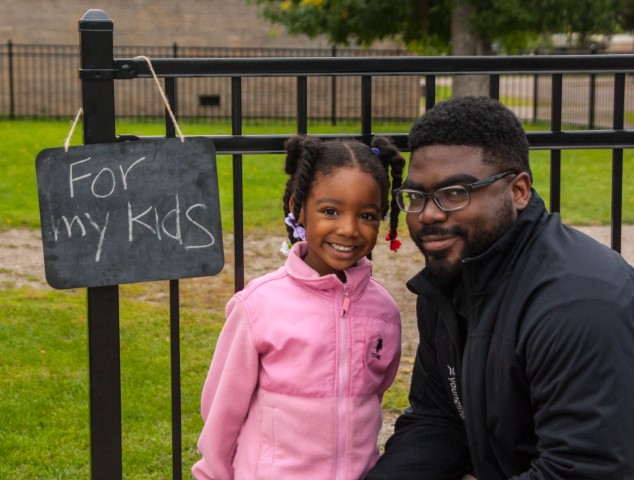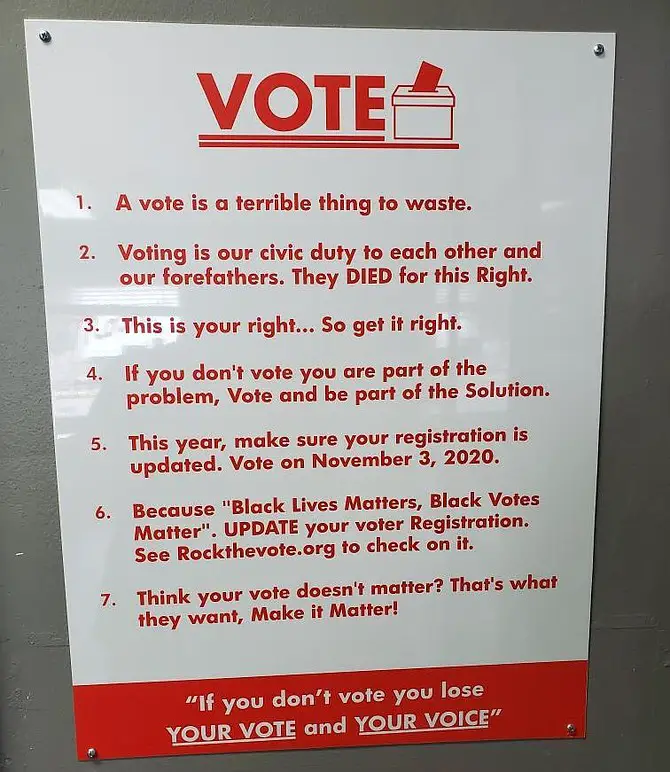Not voting can result in political decisions that do not align with your interests and values. When you don’t vote, you give up your voice and the opportunity to make a difference in the democratic process.
It is important to exercise your right to vote in order to have a say in shaping the future of your community and country. Your vote matters in selecting leaders, enacting policies, and determining the direction of the nation. By not voting, you relinquish your ability to influence the decisions that impact your daily life and the lives of others.
Be an active participant in democracy by casting your vote and making your voice heard.
Impact Of Non-Voting
Not voting can have a significant impact on the political landscape, as it means giving up your voice and influence in decision-making processes. It also allows others to determine the outcome of elections without accounting for your interests or concerns.
Nonvoters’ Demographics And Voting Patterns:
- Research shows that nonvoters are often low-income individuals who face financial constraints and may prioritize other pressing needs over voting.
- Younger adults between the ages of 18-29 are more likely to be nonvoters compared to older age groups.
- Certain racial and ethnic groups, such as Hispanic and Asian Americans, have lower voter turnout rates.
- Education level also plays a role, with individuals who have lower levels of education being less likely to vote.
- Gender can also influence voting patterns, with studies showing that women tend to vote at slightly higher rates compared to men.
Social And Economic Influences On Voting Behaviors:
- Socioeconomic status can significantly impact voting behaviors. Low-income individuals may face barriers such as transportation issues or lack of access to polling stations, making it more difficult for them to vote.
- Social and cultural factors, including family and peer influence, can also affect a person’s likelihood to vote.
- Political campaigns and outreach efforts targeting specific demographics can influence voter turnout rates.
- Civic engagement and political interest also play a role, as individuals who are more politically engaged are more likely to vote.
Reasons Why Certain Groups Are Less Likely To Vote:
- Socioeconomic disparities: Low-income individuals often face barriers such as transportation issues, lack of time, and lack of access to polling stations.
- Lack of information: Some individuals may not have access to reliable information about candidates or issues, leading to disengagement and lower voter turnout.
- Disillusionment with the political system: Some individuals may feel that their vote does not make a difference or that politicians do not truly represent their interests.
- Language barriers: Non-English speakers may face challenges in understanding the voting process or accessing voting materials in their native language.
- Voter suppression: Certain policies, such as strict voter ID requirements or limited early voting options, can disproportionately affect certain groups and discourage voter participation.
By understanding the demographics and voting patterns of nonvoters and the social and economic influences on voting behaviors, we can work towards addressing barriers and increasing voter turnout rates for all citizens.
Consequences Of Not Voting
Not voting can have significant consequences on the democratic process. It limits your ability to influence political decisions and policies, and can lead to politicians not representing your views and interests. Additionally, it weakens the collective voice of the electorate and can result in skewed representation.
Lack Of Representation And Voice In The Democratic Process:
- When you choose not to vote, you are essentially giving up your opportunity to have a say in the democratic process.
- Without casting your vote, you forfeit your chance to elect representatives who align with your values and beliefs.
- By not participating in the voting process, you may feel a lack of representation and may not have your voice heard on important issues.
Potential For Biased Policies And Unequal Distribution Of Resources:
- When a significant portion of the population chooses not to vote, it can lead to the potential for biased policies and unequal distribution of resources.
- Elected officials may prioritize the needs and concerns of those who vote over those who do not, leading to policies that may not benefit everyone equally.
- Without the input of all citizens, decisions may be made that do not reflect the true needs and desires of the entire population, resulting in an imbalanced system.
Impact On The Legitimacy Of Elected Officials And Decision-Making:
- When large numbers of eligible voters do not exercise their right to vote, it can impact the legitimacy of elected officials and decision-making processes.
- Elected officials may not be seen as truly representing the interests of the people if a significant portion of the population does not participate in the voting process.
- This lack of participation can erode public trust in the democratic system and lead to skepticism and disillusionment among citizens.
Legal And Practical Aspects
Not voting can have legal and practical implications. While it is not a legal requirement in most countries, some jurisdictions may impose penalties or fines for failing to vote. Additionally, by not voting, individuals may forfeit their opportunity to have a say in the democratic process and influence the outcome of elections and policies.
Understanding The Legal Requirements And Obligations Related To Voting:
- Every country has its own set of laws and regulations regarding voting. Here are some key points to understand:
- Voter registration: In many countries, including the United States, citizens are required to register themselves as voters before they can participate in elections. Failure to register may result in being ineligible to vote.
- Voting eligibility: Eligibility criteria vary from country to country, but typically include factors such as age, citizenship, and residency. It’s important to know the specific requirements in your country to ensure compliance.
- Voting deadlines: Most countries have specific deadlines by which voters must register or submit their ballots. Failing to meet these deadlines may result in losing the opportunity to vote in that particular election.
- Penalties for non-compliance: Some countries impose penalties for not fulfilling voting obligations. These penalties may include fines or even legal consequences.
Consequences For Not Registering Or Voting In Different Countries:
- The consequences for not registering or voting can vary from country to country. Here are some common outcomes:
- Loss of voice: By not registering or voting, individuals relinquish their opportunity to have a say in the democratic process. This may mean that their opinions and concerns are not represented in the government.
- Lack of representation: Nonvoting can result in underrepresentation of specific demographics or groups within the government. This could lead to policies that do not align with the interests or needs of those who chose not to vote.
- Weakening of democracy: Voting is a fundamental aspect of a democratic society. When a significant portion of the population does not participate, it can weaken the overall democratic process.
- Missed chance for change: Voting provides an opportunity to express opinions and support candidates or parties that align with one’s beliefs. By not voting, individuals may miss the chance to be part of the change they desire.
How Nonvoting Affects Electoral Outcomes And Government Representation:
- Nonvoting can have significant effects on electoral outcomes and government representation. Here’s how:
- Skewed results: When a large portion of the population does not vote, electoral outcomes may not accurately represent the preferences and opinions of the entire society. This could lead to a skewed representation of public sentiment.
- Reduced legitimacy: Low voter turnout can undermine the legitimacy of elected officials and the government as a whole. It may raise questions about the fairness and representativeness of the electoral process.
- Policy impact: Nonvoting can affect the policies implemented by elected officials. If certain demographics are consistently nonvoters, elected officials may prioritize the needs of active voters, potentially neglecting the concerns of nonvoters.
- Misrepresentation: Governments may not fully grasp the diverse needs and priorities of their constituents if nonvoters are not adequately represented. This can lead to policies that favor certain groups over others.
Overall, understanding the legal requirements and consequences of nonvoting is crucial to ensure individuals are aware of their civic duties and the impact their actions (or inactions) can have on democracy and government representation. By actively participating in the electoral process, individuals can help shape the direction of their country and ensure their voices are heard.

Credit: takeactionminnesota.org
Frequently Asked Questions Of What Happens If I Don’T Vote
What Is The Reason Most People Don’T Vote?
Most people don’t vote due to factors like age, gender, education, socioeconomic status, and race.
Why Do Poor People Not Vote As Much?
Poor people may not vote as much as other groups due to factors such as low income, transportation issues, illness, and other constraints beyond their control.
Why Is It Logical For Citizens To Not Vote Quizlet?
Citizens may feel it’s logical not to vote because they believe the benefits of voting are collective and they still enjoy the payoff even without participating.
What Does The Constitution Say About Voting?
The Constitution addresses voting rights in the United States.
Why Do Some People Choose Not To Vote In Elections?
Some people choose not to vote in elections due to various reasons such as lack of trust in the political system, feeling like their vote doesn’t make a difference, or being disengaged from politics.
Conclusion
In the current political landscape, it can be tempting to believe that our individual votes don’t really matter. However, research shows that not voting can have significant consequences. When we choose not to vote, we are essentially relinquishing our power to shape our own future.
By not participating in the democratic process, we allow others to make decisions on our behalf. This can lead to policies and laws that may not align with our values and interests. Furthermore, not voting perpetuates a cycle of apathy and disengagement, which undermines the very foundation of our democracy.
When a significant portion of the population doesn’t vote, elected officials may feel less accountable to the people they represent. This can result in decreased responsiveness to the needs and concerns of ordinary citizens. Ultimately, voting is not just a right, but a responsibility.
It is our opportunity to have a say in the direction our country takes and to hold our elected officials accountable. So, the next time you are tempted to skip the voting booth, remember that your vote has the power to shape the future.
It is a simple yet impactful act that can make a difference in the issues and policies that directly affect you and your community. So, exercise your right to vote and let your voice be heard.

